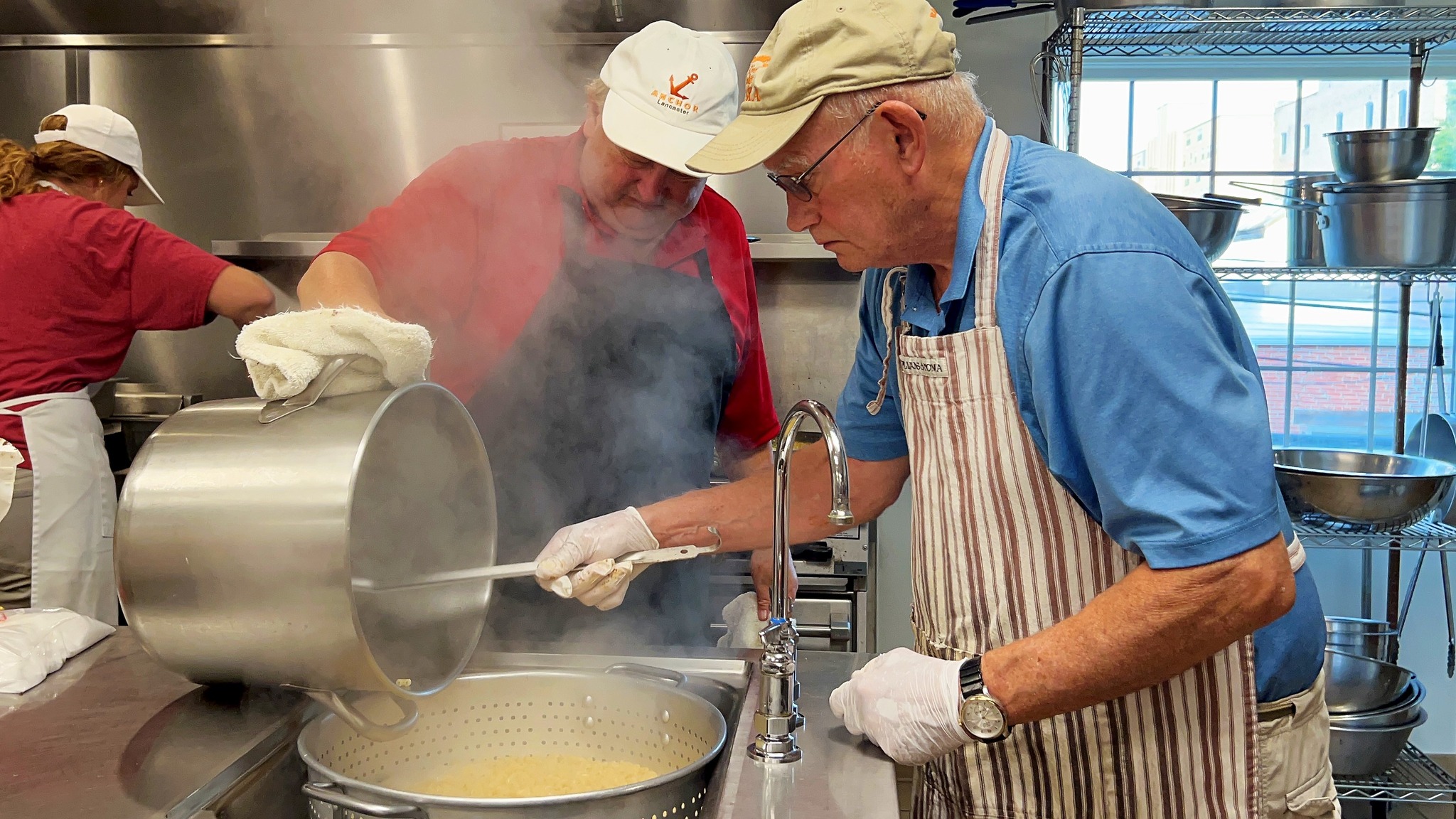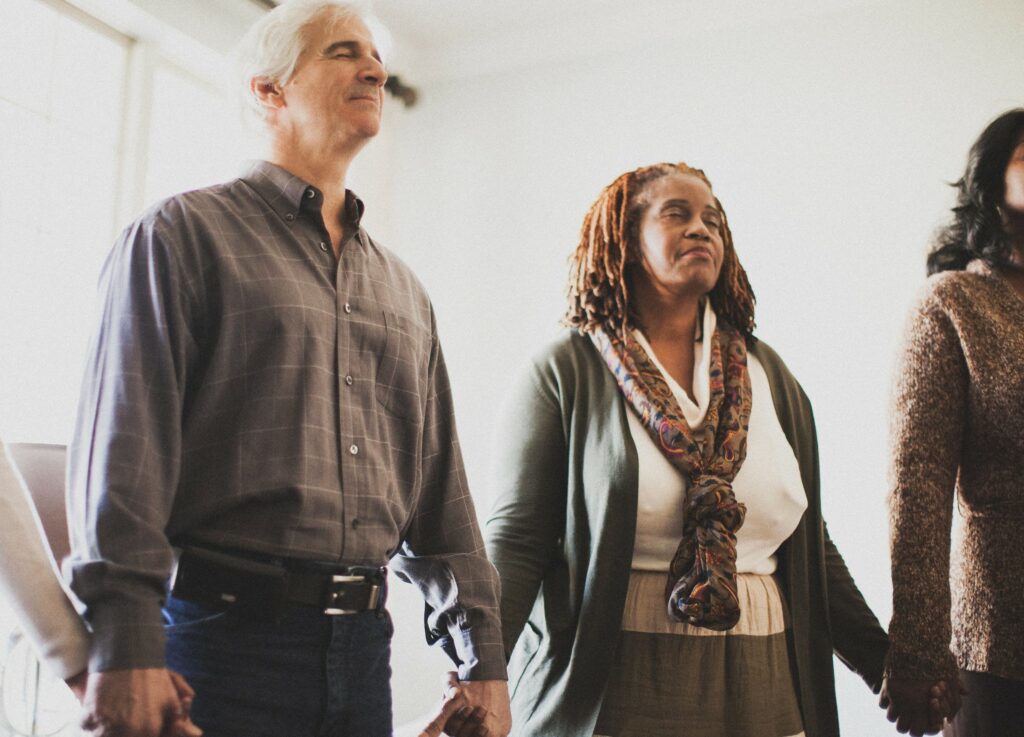 Volunteer cooks at First UMC Lancaster's Anchor Program feeding ministry
Volunteer cooks at First UMC Lancaster's Anchor Program feeding ministry
‘In old age they still produce fruit…” —Psalm 92:14
My wife Joan and I, as we approach retirement, are venturing deep into the previously-foreign world of Social Security and Medicare. Mercy! Where did the last forty years go?
I recently overheard at an outdoor dinner site in Chester County a young man behind me who in smooth conversation with his date mentioned something about his teenage years. With sudden embarrassment, he confessed, “I can’t believe I just said that. I’m closer to 30 than I am to my teenage years!”
What a startling moment of horror for him. I wanted to tell him that I have 8-track tapes that are older than 30, but he wouldn’t have understood. His is not a comment we’re likely to overhear in our local churches, however.
During the four years of my superintendency in the North District, I would attend a worship service (often two) in different sites each Sunday morning; and in the majority of places, I brought the average age of the attendees down…me, at 60-something! That’s an observation, not a criticism. In fact, I lament those congregations who bemoan their advanced maturity, as if they have nothing to offer or no more work of value to do.
Yes, as a whole Church, we need to put greater effort into reaching the Next Generation; and our resources for church leaders are largely focused on that. But the population of older adults in need of discipling is nearly unlimited in the foreseeable future.
According to the Population Reference Bureau, the number of Americans 65 and older is projected to nearly double from 52 million in 2018 to 95 million by 2060. Our local churches are not sustainable if they merely continue with today’s 60- and 70-year-olds. But there will be plenty of new 60- and 70-year-olds in the decades to come, if you’re prepared and eager to receive them.
Generally speaking, older members are faithful worship attenders, generous givers, prayer warriors, and perhaps more familiar with – and loyal to – our denominational heritage. And often, they’re pretty darned smart: “In old age is wisdom; understanding in a long life.” (Job 12:12).

What are the ministry strengths – spiritual gifts – which your older members possess? In a society desperate for relief from anxiety and angst, for instance, many seniors are exemplary models of calm. “Polls consistently show that as an older adult, you are simply better at handling stressful situations than your younger cohorts.” (AARP Bulletin, August 2023).
Surely not everywhere but in many of our communities, a solid faith community with a sustainable future can be built from the giftedness of older adults, and the older adults yet to come.
Start with an enthusiastic observance of Grandparents Day on September 10, since probably more than half of your worship attendees are grandparents. (Proverbs 17:6a). But look forward! CS Lewis said, “You’re never too old to set another goal or to dream a new dream.”
Don’t dream about being age 30 again, or finding an 8-track player so you can listen to the old songs. Instead, discover and build upon the strengths of you current seniors. Perhaps consult this denominational Discipleship Ministries resource link for ideas. (https://www.umcdiscipleship.org/equipping-leaders/older-adults)
Dream for the future. Expect to see fruit. God has a plan for your good, old church.
Questions for reflection
- What talents or life-experiences would our older members enjoy sharing with others beyond our congregation?
- What stigmas or traditional assumptions about older adults do we need to challenge and perhaps debunk in order to launch a vibrant outreach to 60- and 70-year-olds?
- Do we know what the most pressing needs are among senior citizens in our neighborhood?
